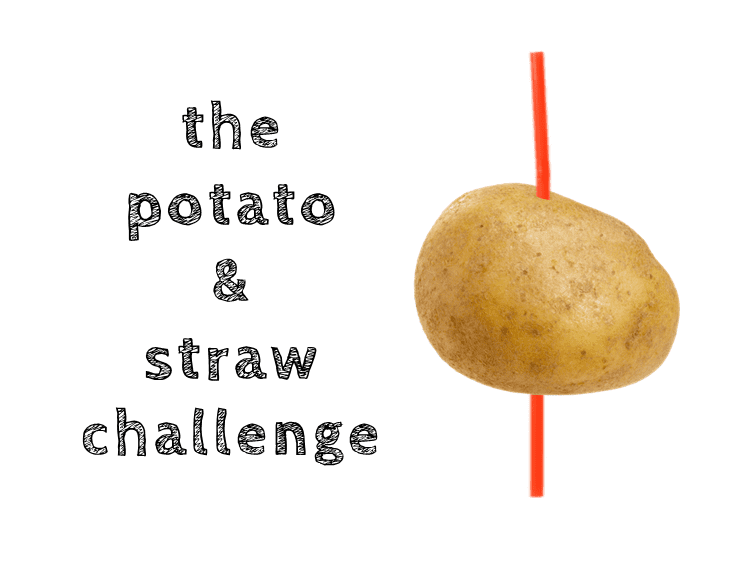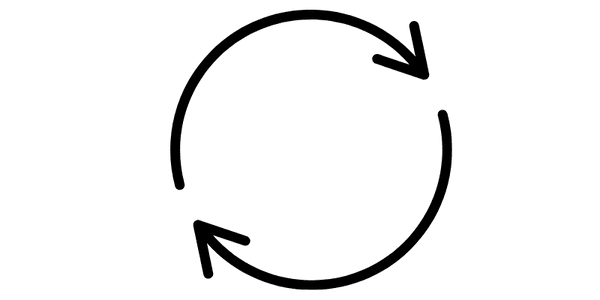
after having a go
So how did you get on? If you achieved it, then congratulations and well done. If you’ve had a go, but haven’t managed to complete the task, please answer the following questions before watching the video:
1) at the outset, did you believe the task was possible?
2) how long did you try before giving up?
3) has your belief in whether it is possible stayed the same, or decreased?
4) did you use internal language such as “I just can’t do this” or “I’m no good at this kind of thing”?
OK, now, watch the video.
after the video
As the exercise shows, beliefs are extremely powerful in affecting attitude, emotions, behaviour and performance – in either direction. For example, in this activity, how big an influence was your belief in completing the task, or not? Beliefs are fundamental to the way we run our lives. If we believe something can’t be done, then what’s the point in trying? But if I believe something’s possible, I’m likely to give it a go.
Your challenge:
...to get an ordinary straw through a potato, so that the potato hangs by the straw, using only your own hands.
have a go...
watch the video
You’ll need a few potatoes and a packet of ordinary straws...
Good luck!
(once you've either achieved the objective, or you’ve given up, come back and play the audio)

First, watch the video...
... then listen to the audio below:

audio 1
Use the first flashcard to write a list of up to 4 beliefs that you have. Just choose the first that come to mind – for example ‘I’m useless at maths”, or “I’ll never be confident enough to give a good presentation”…
Once you have your list, move to the next card and decide how many of your beliefs apply for each statement.
audio 2
Beliefs are not truths, and yet many of us act on them as if they are. Your answers will help you see the extent to which you see your beliefs as if they are truths. But there is a significant difference between them. A truth is a fact, that can be evidenced, can’t be changed, and is universally accepted – for example, “my name is Sandra, I was born in Manchester, and I’m currently 35 years old”. A belief is an opinion, which cannot be evidenced, and is not universally accepted – for example, “I’ll never get the reduced hours I want, or if I do, I won’t then get a promotion – in fact I’m much more likely to get the sack”
Belief or truth?
What's the difference?
List 4 beliefs that you hold…
How many of your 4 beliefs are...
audio
Do any of the following apply to you?
1: Are any of your beliefs potentially unconscious? If they are then you cannot consciously challenge or change them.
2: Have you had any of your beliefs for some time?
If so they are now engrained, and unlikely to change unless key conditions change or something dramatic happens. And if we seek out confirmation of our beliefs and are dismissive of other perspectives, then such beliefs can be difficult to uproot
3: Have any of your beliefs got in the way of your own progress or development?
Whilst many beliefs can be entirely positive, some, of course, can be very restrictive. For instance there are many examples where someone else thinks the other person is very able, but the individual does not; and as a consequence, that lack of belief almost always leads to failure or a diminished effort or outcome…
4: Have you any belief that might encourage you to avoid certain tasks - as in ‘I’m no good at…..”?
A limiting belief can be used, consciously or unconsciously, to avoid something that is boring or difficult or in any other way, unappealing. Saying “I’m no good at (X)” is a good defence, because who would want someone to do something they are no good at? It seems a much more acceptable defence to many than “I can’t be bothered” or “I don’t like it”
5: Do you tend to seek out people whose beliefs you agree with?
While there is comfort in being with people who think like you and value the things you value, you could end up with a distorted view of the world, where, at its worst, the only views that matter are those you agree with – and you perhaps miss the opportunity to hear and even accept alternative perspectives
So what?... Why does it matter?
Often unconcious
... & therefore difficult to change
Self-re-inforcing

…unless conditions change
(confirmation bias)
Time to get out of your own way?
…because false beliefs can prevent personal development and success
Excuses, excuses?

Can lead to avoidance …as in “I’m no good at…”
Distortion rules
You may seek out those with the same ‘truth/belief’ as yourself, and dismiss others with different ‘truths’
my notes
Choose an unhelpful or self-limiting belief. It could be one of your own, or one held by someone else. Write it down below.
In the next two sections we offer some suggestions to challenge that belief. As you read or listen, choose up to three suggestions, and decide how you are going to use them in practice.
other
If the example applies to someone else:
Explain the differences between a truth and belief – this may be something they have never considered before.
Offer evidence to challenge their ‘truth’. For example, something may be ‘true’ for them, but not for others – so it is not a universal truth…
Ask if they have ever had a ‘truth’ that has changed. For example, did they ever think something was true, and then something happened to show it wasn’t. Two good historical examples are previous truths that the Earth was flat, and that the sun travelled round the Earth – which were both later confirmed as untrue…
Provide an example where you have changed a ‘truth’. It can be helpful to use your own experience as a reference point.
Ask if it would be helpful if that ‘truth’ could be changed. This is particularly good for any self-limiting belief. For example, suppose someone believed there was no point in them applying for promotion; ask them what if that were not true: that there was a positive point and benefit in applying – what would happen? This may give them encouragement to consider how a more positive belief could make a positive difference…
Ask if they know anyone they respect, who does not share the same ‘truth’. This has two possible benefits: it makes the person put themselves in a positive frame of mind, by thinking of someone they respect (and therefore of value); and also shows that, by not having the same truth, it not only confirms the belief as a belief, but also could make them think of the relationship between that person’s value and a different ‘belief’ set…
self
If the example applies to you:
If you have an unconscious belief:
- someone may point out a common action of yours which could help you recognise that it is a consequence of an unconscious belief
- you could spend some reflective time looking at your ways of thinking or behaving, to see if there’s a common cause that could be a belief
- you could undergo some form of therapeutic hypnosis; this isn’t for everyone, but for some it’s a highly effective way in addressing hidden or suppressed beliefs
If a negative belief persists
- consider whether you might actually get a benefit from the belief, as well as a cost. For example, a belief that you are ‘hopeless’ at something might gain you sympathy and attention, which, on balance, may be worth the downside of being ‘hopeless’…
- if you feel and accept that belief is unhelpful, work out ways in which it could be changed, remembering and accepting that it is only a belief, and not a truth
- consider whether the negative ‘belief’ is actually no more than a repetitive negative habit – which, through repetition, has now established a reputation in your mind as a ‘belief’. In other words, the negative habit is not due to a negative belief, but the reverse: the negative belief is due to a negative habit. If this might be the case, then get busy changing the habit
- Be open to any evidence that challenges or contradicts a persistent negative belief. Here are two examples of negative beliefs I used to have, that have been changed; and why I was able to change them:
The first belief was: “I am poor at maths”. I changed it to “I am average at maths”. And the reason? Because I Iooked at the evidence, based on my experience. My second belief was “I am clumsy”. I changed this to “It’s an asset, in sharpening my reflexes by catching things I’d knocked over”. And the reason for that change? Somebody pointed that out to me.
If you have a self-limiting belief:
- what would the impact be if these beliefs could be changed in ways so they were no longer valid? Could you write down (say) up to 3 negative views or beliefs you have about yourself or the world (including other groups or categories of people), then convert each to a positive version. What would be the consequence for you, if you followed the positive version?
- What may be crucial is the internal motivation to change, rather than the external evidence; because sometimes evidence for or against the belief may be difficult to get, or be contradictory. But if you know the belief is unhelpful, that in itself may be a sufficient motivation for change
If your belief leads you to avoidance:
- recognise that having a belief can act in this way
- then ask yourself, is ‘avoidance’ a long term success strategy for you, and are you comfortable being dishonest in this way?
- avoidance of course keeps you where you are, in skills and experience terms; it is part of a ‘fixed’ mindset. You cannot develop anything that you are avoiding…
Rising to the challenge...
Choose an unhelpful or self-limiting belief. It could be one of your own, or one held by someone else. Write it down below.
In the next two sections we offer some suggestions to challenge that belief. As you read or listen, choose up to three suggestions, and decide how you are going to use them in practice.
- Explain… the differences between a truth and belief
- Offer evidence to challenge their ‘truth’
- Ask… if they have ever had a ‘truth’ that has changed
- Provide… an example where you have changed a ‘truth’
- Ask…if it would be helpful if that ‘truth’ could be changed
- Ask… if they know anyone they respect, who does not share the same ‘truth’
- Be receptive to feedback that could reveal an unconscious belief
- Reflect – perhaps with others – on the possibility of unconscious beliefs driving your attitude and behaviour
- Do you get a benefit as well as costs? If you’re ‘hopeless’, you might get loving sympathy…so break that cause and effect…
- Is your belief no more than a negative habit – if so, work on changing the habit
- Listen to what the evidence says – don’t dismiss it
- Find the motivation to change, rather than wait for external evidence
- Refuse to use your beliefs as avoidance; base your decision on a positive rather than negative reason
- Do the benefits of any change make letting go of your belief worth it?
- Remember that, unlike truths, beliefs can be changed, by you, so ultimately the choice for change is yours
want more?...
How to Change Your Limiting Beliefs…
Focuses on the power of the subconscious; how the body and the mind can work together; and a look at a new change approach: Psych-Kwatch on youtube.com
What if False Beliefs Make You Happy?
So what’s so good about reality? Are we better off with positive false beliefs than negative truths? Why “positive illusions” are damaging in the longer term…watch on youtube.com
